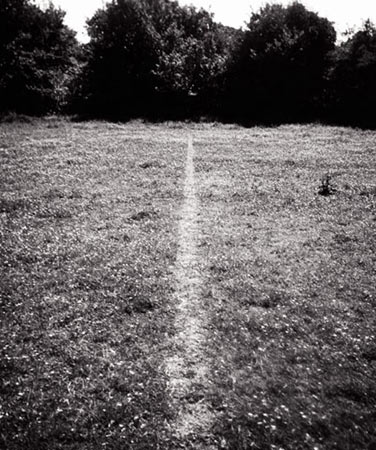The conversation around habits seems to be focused on how we need to break our bad habits, or create new healthy habits. We do this without giving credit to the miracle that habits are. They are an essential element to all life. Without being able to readily form habits, at best, we would still be trying to move like newborns. They are the means to which we adapt to novelty.
“If an act became no easier after being done several times, if the careful direction of consciousness were necessary to its accomplishment on each occasion, it is evident that the whole activity of a lifetime might be confined to one or two deeds.”
Dr. Maudsley quoted in William James’s Principles of Psychology Vol. 1
Habit is not just something that allows us to gain coordination, but it also is at the core of anything we call “learning.” In a more subtle way, remembering a fact is an act of mental habit. Memorizing those facts you learn in school might be done in the same way that you would build a motor habit or skill.
Habit, like any action or decision, is predictive of the future. It is like your nervous system deciding not to put your keys too deep in the drawer because you need them every day. The coordinated actions that you use the most, and with reliability should be done quickly and relatively effortlessly. It allows common actions to be as fast as you need them, without wasting energy or focus.
This article will focus on how action and outcome are relevant to the formation of habits and how alterations of these habits can create what we call “skills.”
A Lack of Surprise Signals a Habit
What is the mechanism for creating a habit? As mentioned, a habit is essential to making a past action more swift and smooth next time it is done, and more so after that. Habits form naturally as we try things out and have relative success with them.
You may do something and a new result that you like happens. This orients you to what the significant part of the action was. The next time you do that you still like the result, and the action is reinforced. As you repeat the behavior, you are learning the most efficient route to the reward. The positive affect is a confirmation that your actions are learning to navigate the world.
When the affect diminishes, that is a sign of habituation. You are not surprised at what you already know regarding your dealings with the world. Each time you accomplish a task and the expected result happens; you are building a stable habit. The more you repeat this, the more solid it becomes.

William James, in The Principles of Psychology, uses the analogy of flowing water to describe the dynamic of habit building. And like a river, the more a habit gets carved out, the less impeded the action (or water) becomes and the flow or action becomes faster. That is what creating a habit does to the nervous system, it creates a pathway of neurons which have fairly reliable connection. It would be hard to redirect water away from a canyon.
It is important to emphasize that habits are built and made unconscious by achieving the end in which you expect. If nothing unexpected happens, no attention is needed. A complex habit can be done easily, but without knowledge of the individual elements. This is a great thing, as Dr. Maudsley suggests. If we had to pay attention to every little thing that we do, we would be so uncoordinated, and our attention would be constantly spent. For example: we do not even realize the stabilizing muscles that are active when we shift our center of gravity but simply lifting an arm, but one time we had to learn to coordinate that.
But the lack of attention has a downside. Much of these habitual actions are delegated to the unconscious and we could not even be aware of them if we tried. We cannot see what elements of a habit are doing harm to us if we continue to get a “good enough” result to justify the habit. This makes it hard to change habits because we are not totally sure what we are doing wrong.
The Need and Cause of Variability in Habits
To go back to the river analogy, a deep river is less likely to branch in other directions or completely reroute. Habits tend to harden and become stable and increasingly less adaptable. This is part of why they can become maladaptive.
But we know our habits are not perfectly reflexive, robotic motions. They have built in flexibility. When we walk, we have no trouble carrying something, moving our arms, turning our heads, or stepping over a small obstacle. Walking is a dynamic habit that accounts for many variables in its motion. Imagine how early robots walked, if they stepped on an uneven surface, they would clunk over. A simple walking robot has a habit without any variability.

How does a formed habit gain variability?
I recall that Tony Robbins once suggested to a man, who was addicted to chocolate, to eat as much as he could in a short amount of time. Apparently, this intervention worked as it made the man so sick of chocolate that his habit was broken. This idea can be supported by psychology’s understanding of habit.
Surprise or pain signal a variation in the world that the habit does not account for. This signals attention to modify that habit. Pain is especially helpful in changing habits. Muscle pain in particular can change one’s posture and mechanics and cause problems far worse than the initial injury. In fact, pain is chemically linked to neural plasticity and degeneration. Pain signals to your habit-system that it does not actually know what is good. Pain directs your attention to the action and motivates you to change that habit.
When variation is required, and remains unnoticed, we can make blunders. This is a case where we acted too automatically. There is case that is famous in psychology of a flight of stairs which people seemed to trip over the same step each time. When it was investigated, the one step was found to be at a slightly different height than the others. Though the difference was small enough to not draw attention, it was significant to make a fool of the habit-systems of the people unlucky enough to trip over it.
It is unlikely that we will have to worry about these kinds of mistakes in our daily life, but it is still important to reserve vigilance for other habits which are not “simple” tasks like walking up and down steps.
Our habits may not work if the situation were slightly changed, and contexts and objects change very often, and in unpredictable ways. Any important variation should give us cause to not form a habit. But if a habit is already formed without consideration the variation, it is more difficult to change.
Why might adding variation to habit be good? Because it accounts for long-term adaptability. If we do a simple task without adding variation, because we live in a complex world, something will surely change, and shock us into chaos. Sometimes bad habits are really just fine habits that lack the ability to account for complexity. If we build a habit based merely on the immediate outcome, it may never have the dynamic skill that will reward us in the long-term. You are less incentivized by long-term pain to stop a habit.
For instance, if you keep hitting the baseball off the tee, you will be great at that, but not necessarily in a real baseball game. What we have is a narrow habit, what we hope to gain is a skill.
Skill
Skill is clearly related to habit. To be able to do something quickly and precisely and with little attention paid to the task certainly counts as a skill. But skill, I believe accounts for more than just habitually perfecting certain motions of a simple task.
As mentioned already, the ability for a habit to adapt is essential to building a complex skill. The habit should be able to adapt in proportion to the probabilities of variability of the task. If something is never the same, a habit is not needed; attention is.

However, simply adding variation to the situation is not good enough, you must act in a way to accommodate that variation. Move the baseball tee a little and you will have to adjust your swing. Otherwise, you will, proverbially, see everything as a nail because you only use your hammer. The best way to do this is to have to result feedback contingent on right action. This means context is highly important and practicing in controlled environment is not always beneficial because you cannot always punish overly-generalized habits, and controlled conditions don’t teach you the probabilities of variation or cues signaling variation that you need to react to.
Perhaps, this is one way, of many others, to build skills for complex tasks. Start with the “ideal” habit, and introduce variability. If you perfect the main task, engraining that into habit. The next step would be to introduce some variability to the task. This is likely not the only method, and in future articles, I will talk about other ways in which habits can become skills.



